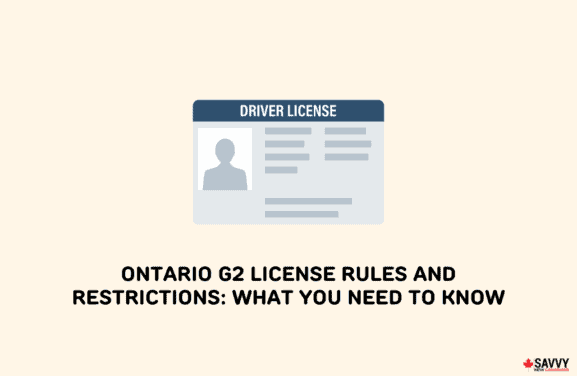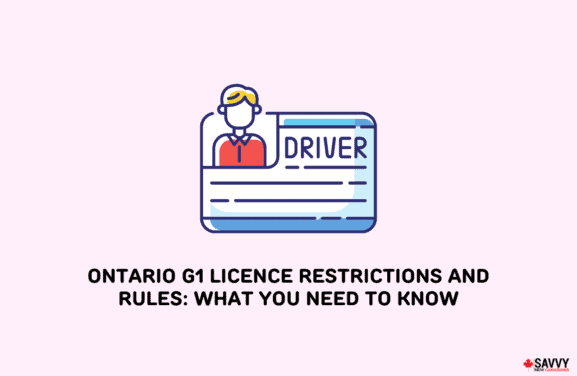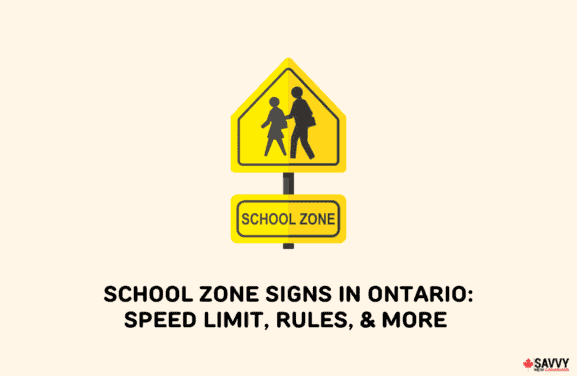A bill of sale is an official document required for selling, buying, or leasing a vehicle. It essentially serves as a receipt that verifies a vehicle’s transfer of ownership between two parties.
In Alberta, without a bill of sale, the lease or sale of a vehicle won’t be considered legitimate.
On that note, this article breaks down everything you need to know about preparing a bill of sale, including how it works and the necessary information to include.
Key Takeaways
- The bill of sale is a legally binding document that serves as proof of transfer of vehicle ownership.
- In Alberta, all buying, selling, and leasing transactions for vehicles must have a signed bill of sale to be considered legitimate.
- There are two types of bill of sale documents: Standard and Comprehensive. The former is used between individuals, while the latter is used when purchasing or leasing a vehicle from businesses.
What is a Bill of Sale?
The bill of sale is a legal document that proves ownership when leasing, buying, or selling vehicles. It contains essential information about the vehicle, buyer, and seller, along with important details summarizing the transaction between the parties involved.
In Alberta, a bill of sale is required for both private and business-to-consumer vehicle transactions. This document can be handwritten and doesn’t need to be notarized, but it is legally binding when signed by both parties.
How a Bill of Sale Works in Alberta
The most common uses of a bill of sale are listed below.
Transaction Summary
The bill of sale summarizes all important information regarding the transfer of vehicle ownership. By providing a comprehensive overview of the transaction,
this document establishes a mutual understanding and agreement between the parties involved.
Transfer of Ownership
The primary purpose of the bill of sale is to provide proof of ownership transfer. It’s one of the mandatory documents to register your car in Alberta, and most insurance companies also require it when insuring your vehicles.
Protection for Buyers and Sellers
For sellers, the bill of sale protects from further liabilities that the vehicle may be involved with. It proves the seller is no longer responsible for any missed payments or fines charged to the vehicle owner.
The bill of sale also protects buyers, as it serves as legal proof of vehicle ownership. If the seller attempts to reclaim ownership or dispute the sale, this document can be presented as evidence to support the buyer’s claim.
What Do You Need A Bill of Sale for in Alberta?
When living in Alberta, completing a bill of sale is necessary for selling, purchasing, and leasing a vehicle. It’s one of the legally-binding proof of ownership documents that the government accepts to give you a Vehicle Registration Certificate.
What to Include in a Bill of Sale: Standard vs Comprehensive
There are two types of bill of sale documents: Standard and Comprehensive. They both have the same purpose of transferring vehicle ownership but list slightly different information.
Let’s go through each version in detail.
Standard Bill of Sale in Alberta
The Standard bill of sale is used for private vehicle sales or transactions between individuals. Among the two types of bill of sale documents, this version requires less information as some specifications of the transactions are optional.
Mandatory Information
The following are the mandatory details you must include in a standard vehicle bill of sale in Alberta:
- Complete legal name and address of the buyer(s) and the seller(s)
- Vehicle Identification Number (VIN)
- Specifications of the vehicle (such as the model, make, colour, style, and year)
- The agreed price of the vehicle
- Signatures of all the parties involved
Recommended But Optional Information
- Witness names and signatures
- Payment method and terms
- Odometer reading
- Contact information of everyone involved
- Copy of the identification cards of both parties
- Special conditions of the transaction
- Last place of registration of the vehicle
Comprehensive Bill Of Sale In Alberta
When selling or leasing vehicles, businesses must provide buyers with a comprehensive bill of sale. As the name suggests, this version includes additional information about the transaction to safeguard buyers from unauthorized or unexpected costs.
Below are the lists of information that must be included in a comprehensive bill of sale.
Buyer/Seller Details
The buyer must provide their legal name, address, and a copy of a government-issued ID. From the business side, the business operator’s license number, the salesperson’s name and registration number, and the institution’s address must be included.
Vehicle Information
The Vehicle Identification Number (VIN) and the vehicle’s colour, body type, make, model, and year must be listed.
Payment Information
For comprehensive bill of sale documents, this section must be as detailed as possible. The payment timeline and the date when the vehicle will be handed over to the buyer should be clearly specified. Moreover, the vehicle’s total cost and all other applicable fees must be noted.
Vehicle History
The official vehicle mechanical fitness assessment, odometer reading, and history of use must be recorded.
Trade-In Information
If another vehicle is traded in, it must also be explained in detail in the bill of sale. Its value, condition, and general information must be included.
Conclusion
A bill of sale is mandatory when buying, selling, and leasing vehicles in Alberta. It’s necessary to know what should be included in this document to protect your rights as a buyer or seller and prevent potential legal complications.
FAQs
Yes, the bill of sale is legally binding in Alberta. As long as both parties have signed, there’s no need for this document to be notarized to be legally recognized.
You can’t back out of a car dealership after signing a bill of sale in Alberta. All of the agreement terms outlined must be followed. Otherwise, you may suffer legal consequences if you fail to comply.
Yes, the bill of sale can be handwritten in Alberta. Just ensure everything is legible and obtain the signatures of both parties.
Yes, you need a bill of sale to register a car in Alberta. It’s the primary proof of ownership the provincial government recognizes.
You can download a sample bill of sale from the CAA here.
Related:



